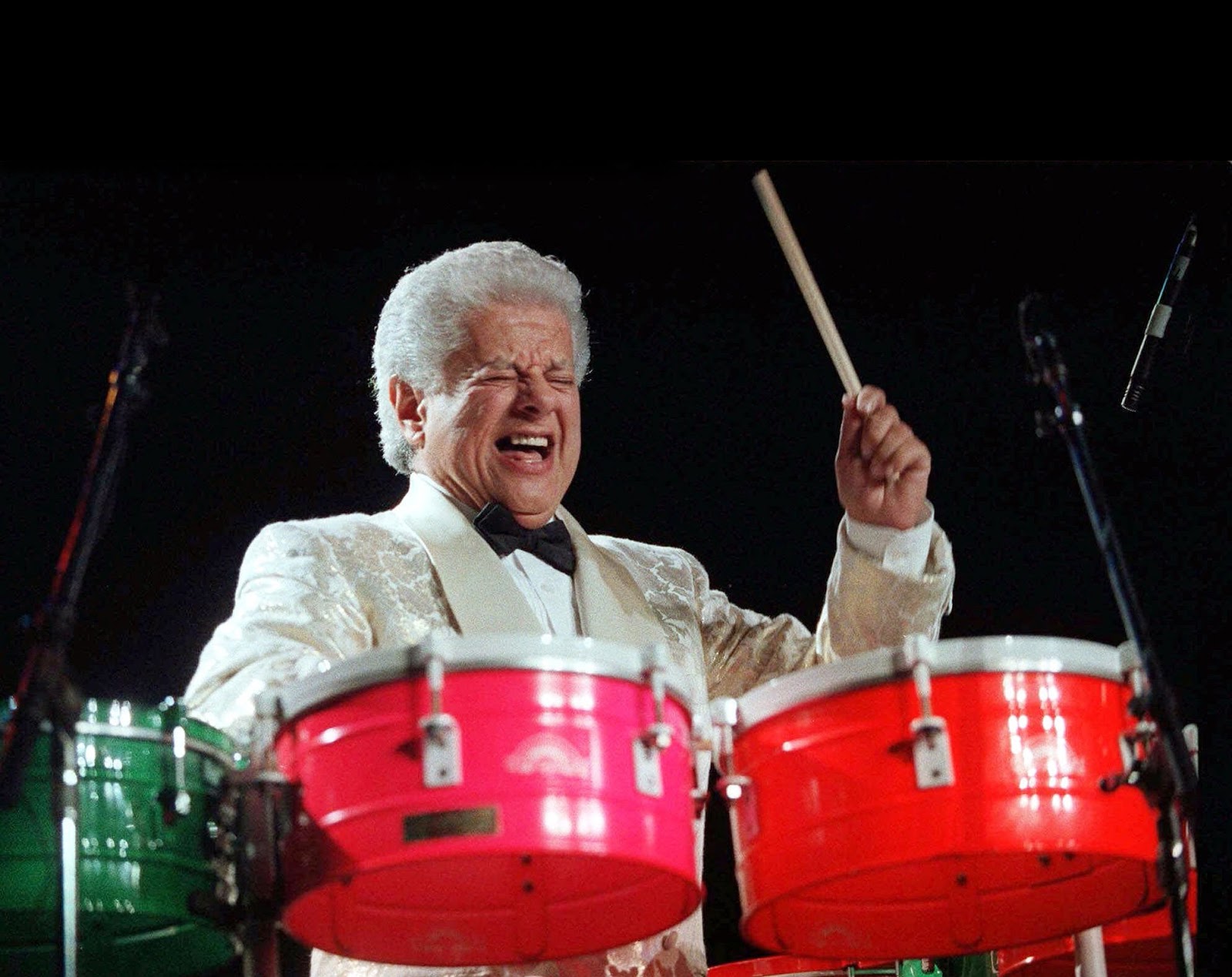Tito Puente, a name synonymous with passion, rhythm, and innovation, stands as an enduring icon in the world of music. Known as the "King of Latin Jazz," he mesmerized audiences with his mastery of percussion and his ability to blend Afro-Cuban, Latin, and jazz influences into a vibrant, unique sound. From the mambo craze of the 1940s and 1950s to his later contributions to salsa and jazz, Tito’s work transcended borders and genres, leaving an indelible mark on the global music scene. His infectious energy, technical brilliance, and creative genius continue to inspire generations of musicians and fans alike.
Born in New York City to Puerto Rican parents, Tito Puente was deeply influenced by the rich cultural diversity of the Spanish Harlem neighborhood where he grew up. His early exposure to Latin music, combined with a relentless drive to perfect his craft, set the stage for a career that would redefine the possibilities of percussion. With more than 100 albums, 400 compositions, and numerous Grammy Awards to his name, Tito’s contributions extend beyond his music. He was a pioneer who pushed the boundaries of what could be achieved in Latin jazz, and he became an ambassador for Latin culture on a global scale.
But Tito Puente was more than just a musician—he was a cultural icon, a philanthropist, and a mentor to countless artists. His larger-than-life personality and tireless advocacy for music education cemented his legacy as a true legend. This article delves into the life and career of Tito Puente, exploring his early years, his rise to fame, his musical innovations, and his lasting impact on the world of music and beyond. Let’s take a closer look at the man whose name continues to resonate like the beats of his timbales.
Table of Contents
- Biography and Personal Details
- Early Life and Musical Beginnings
- Rise to Fame
- Musical Style and Innovations
- Contributions to Latin Jazz
- Collaborations and Influences
- Awards and Recognition
- Philanthropy and Cultural Impact
- Tito Puente’s Legacy in Modern Music
- Personal Life and Family
- Discography and Top Hits
- Influence on Future Generations
- Tito Puente in Pop Culture
- Frequently Asked Questions
- Conclusion
Biography and Personal Details
Tito Puente, born Ernesto Antonio Puente Jr., came into the world on April 20, 1923, in Manhattan, New York City. Raised in the vibrant and culturally rich neighborhood of Spanish Harlem, his early life was shaped by a fusion of Puerto Rican traditions and the dynamic energy of the city. Despite humble beginnings, his prodigious talent and relentless determination would propel him to global fame.
| Full Name | Ernesto Antonio Puente Jr. |
|---|---|
| Date of Birth | April 20, 1923 |
| Place of Birth | Manhattan, New York City, USA |
| Nationality | American (Puerto Rican descent) |
| Profession | Musician, Composer, Bandleader |
| Genres | Latin Jazz, Mambo, Salsa |
| Instruments | Timbales, Vibraphone, Percussion |
| Years Active | 1940s–2000 |
| Date of Death | June 1, 2000 |
Puente’s parents were Puerto Rican immigrants who instilled in him a deep appreciation for music and culture. His mother, Ercilia Puente, encouraged his artistic pursuits, while his father, Ernesto Puente Sr., worked tirelessly to provide for the family. Tito’s upbringing in Spanish Harlem exposed him to a diverse array of musical styles, including jazz, big band, and Afro-Cuban rhythms, all of which would later influence his unique sound.
In addition to his storied musical career, Tito Puente was a devoted family man and a passionate advocate for education and cultural preservation. Married to Margaret Asencio, the couple had three children: Tito Jr., Audrey, and Richard. Despite his demanding career, Tito always made time for his family, and his children often accompanied him on tour, witnessing firsthand the magic of his performances.
Through this detailed exploration of Tito Puente’s life and career, we aim to shine a light on the many facets of this extraordinary individual. From his musical achievements to his personal values and contributions to society, Tito Puente remains an enduring symbol of excellence and innovation in Latin music.
Article Recommendations
- Exclusive Southern Charm Photos Behindthescenes Moments
- Spotify Cto The Secret To Driving Innovation In A Fastpaced Industry
- The Hands That First Held Marys Child A Story Of Miracles

